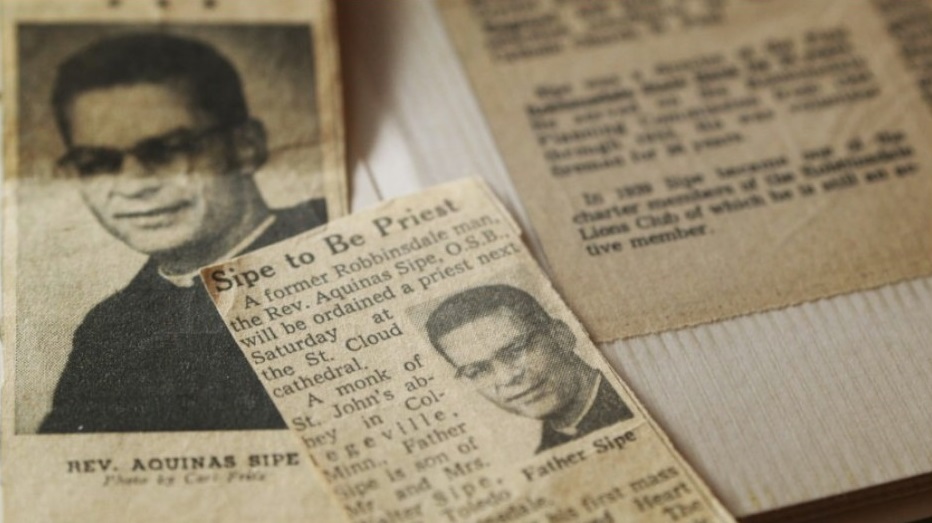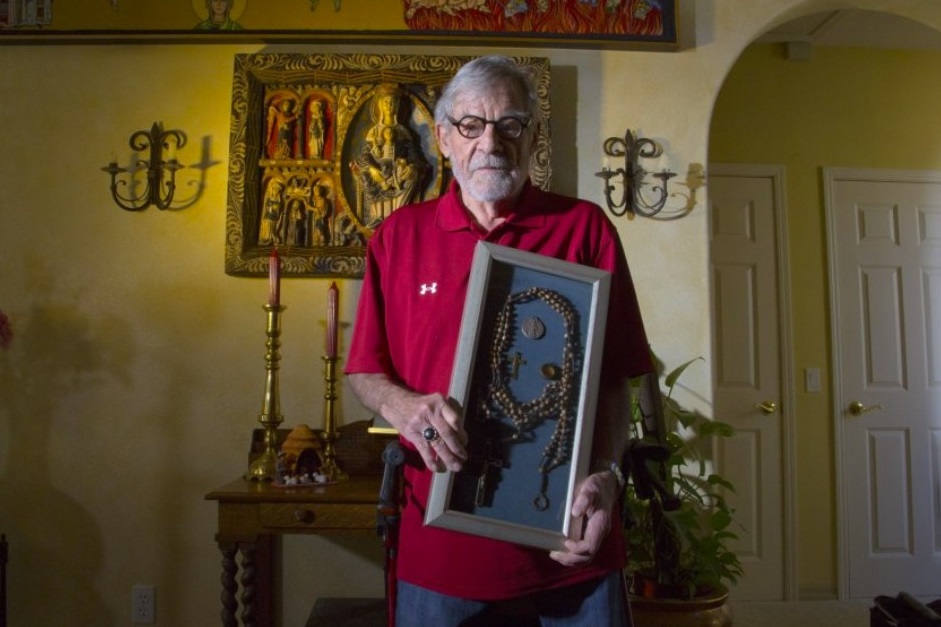SAN DIEGO (CA)
La Jolla Light [La Jolla CA]
April 22, 2021
By Mark Day
‘Sex, Lies and the Priesthood’ tells the story of the late Richard Sipe, who helped expose abuse.
In a scene in “Spotlight,” the Oscar-winning film about clerical sex abuse, Boston Globe reporters huddle around a speakerphone listening intently to the words of Richard Sipe, portrayed by actor Richard Jenkins.
Sipe, a former Benedictine monk renowned for his defense of clerical sex abuse victims, died at his home in La Jolla at age 85 on Aug. 8, 2018.
Sipe stunned the Globe reporters when he said 50 percent of American Catholic priests do not practice celibacy. He assumed that at least 6 percent of Boston priests were sexual predators.
He was wrong. The Globe uncovered nearly 100 priest predators in the Boston archdiocese, about 10 percent of its clergy.
The Globe series, relying heavily on Sipe’s research, won a Pulitzer Prize and led to Cardinal Bernard Law’s early retirement and transfer to Rome.
“Sex, Lies and the Priesthood,”which premiered in March, is the latest documentary on Sipe by Boston filmmaker Joe Cultrera. In an interview, Cultrera said the project was funded by Terrence McTiernan of bishopaccountability.org, an independent watchdog on clerical sex abuse.
Anne Barrett Doyle, the group’s co-founder, said it has amassed more than a million documents, often quoted by researchers, social scientists and journalists.
“Terry wanted to preserve Richard’s story,” Cultrera said. “We spent five days with him at his San Diego home and in Minnesota, where he lived and taught.”
Sipe narrates his own story. We see surfers in La Jolla and Sipe’s artwork and needlepoint exhibited on the walls of his home.

After ordination in 1959, Sipe soon discovered though his psychotherapy practice and hearing priests’ confessions that clerics had active sex lives.
“At the heart of this is what I call the confessional layer,” he told McTiernan. “You have the reality of what goes on. Above all that is the image of priests and bishops as perfect human beings. This hermetically sealed on the level of ‘Bless me father, for I have sinned.’”
Sipe spent several decades as a priest psychotherapist, interviewing hundreds of priests, bishops and victims of sex abuse. He served at St. John’s Abbey in Minnesota, as a student at the Menninger Foundation in Topeka, Kan., and at the Seton Psychiatric Institute in Baltimore.
He even interviewed parish housekeepers. “I asked one of them how she knew about the pastor’s abuse of underage boys,” he said. She responded, ‘I do the laundry.’”
A young priest told Sipe that when he reported that his pastor was inviting underage boys to his room at night, his bishop responded: “Look, you are naive. Mind your own business.”
In 1986, he sent his findings to Archbishop Daniel Pilarczyk, head of the National Conference of Catholic Bishops. He never received a reply. But someone leaked the data to Newsweek magazine, and the story went viral.

Sipe later published the research in his book “A Secret World: Sexuality and the Search for Celibacy.”
Meanwhile, Sipe was dealing with his own personal struggles. The sex scandals at Minnesota’s St. John’s Abbey, when he served as personnel director, disturbed him. When the abbot suggested Sipe be nominated as his successor, he balked.
He resigned from the priesthood and received a dispensation from his vows from the Vatican in 1970. He married Marianne Benkert, a former Maryknoll nun and psychiatrist.
“We both felt vulnerable,” he said. “It was time to move on.”
One of Sipe’s final gestures was to share his research with Bishop Robert McElroy of San Diego. The San Diego Union-Tribune reported that Sipe’s meetings with him were “rocky” and eventually broke down over legal issues.
During a virtual discussion with the filmmakers, Benkert Sipe revealed that her husband’s passion for helping sex abuse survivors had something to do with his own trauma.
“Richard remembered being abused by an uncle when he was a toddler,” she said, “and later as a teenager when he was sexually assaulted by an ex-Marine whose bed he shared at a summer camp.”
Looking back, Sipe concluded in the documentary, “A friend told me: ‘You have a prophetic vocation. You are telling people who don’t want to listen to you things they don’t want to hear.’ That gave me a sense of comfort. You just wait, just do it, just be it. Something good will come from it.”
Mark Day covered the West Coast for the National Catholic Reporter in the 1980s and was part of a team of reporters who produced an award-winning series on clerical sex abuse in 1985. ◆
